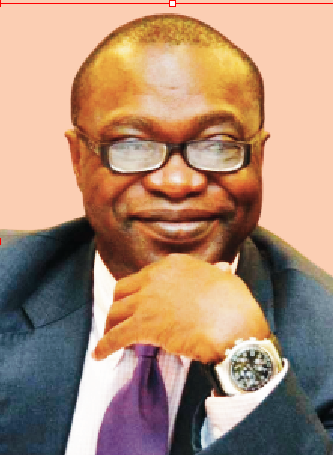Agriculture, crowdfunding and Nigerian Diasporans’ 6th Investment Summit

Chido Nwakanma is a communication strategist, journalist and journalism educator with extensive experience in IMC and strong interest in developing humanity. He can be contacted at chido@brandhaus.ng and via SMS on +234 (0) 803 723 1111; (0) 812 647 4335
November 6, 2023315 views0 comments
Riding on their humongous remittances of $19.9 billion in 2021, Nigerian Diasporans will tackle agriculture and crowdfunding at the 6th Nigerian Diaspora Investment Summit from November 13 to 15.
Their contribution was higher than the country’s earnings from Foreign Direct Investment in that year. According to UNCTAD’s 2022 World Investment Report, FDI flows to Nigeria totalled $4.8 billion in 2021, more than doubling from the previous year ($2.3 billion in 2020) and well above the pre-pandemic level. It fell again to $-0.19 billion, a 105.64 percent decline from 2021.
Renowned global non-profit organisation Heifer International will lead the exposition during a special session highlighting significant investment opportunities, trends and developments, and thought leadership insights in the Agribusiness sector. Heifer is the lead sponsor.
Heifer Nigeria’s signature initiative, Naija Unlock, aims to help unlock Nigeria’s food self-sufficiency potential by working with smallholder farmers to fill the gap in local food demand while closing the income gap for families. Heifer in Nigeria supports smallholder farmers in tomatoes, rice, poultry, small ruminants, and cattle value chains.
Read Also:
The focus on agriculture comes as the African Development Bank (AfDB) president, Akinwunmi Adesina, stated in Des Moines, Iowa, USA last week that Africa’s food and agribusiness will be worth an estimated $11 trillion by 2030. Adesina spoke at the World Food Prize Foundation’s Norman E. Borlaug Dialogue.
The annual event in America’s agricultural heartland revolved around this year’s theme of “harnessing change,” with delegates and panellists exploring innovative ideas to shore up innovation, adaptation, and diversification, and mechanisms for improving resilience, recovery from shocks, and sustainable systems to feed the world.
Several world leaders are actively bolstering food production and food security in Africa. This includes coming together for a landmark global Feed Africa summit in Dakar (the Dakar 2 Summit) last January.
Africa is home to 65 percent of the world’s remaining uncultivated arable land but imports food. Nigeria accounts for a large portion of the untamed land.
Other Nigerian Diaspora Investment Summit 6 features include a business pitching segment where home-based entrepreneurs and founders present their identified and verified investment opportunities.
UK-based Africa Foundation for Development (AFFORD) will moderate a crowdfunding session to share knowledge, insights and tips on maximising crowdfunding for startup and early-stage fundraising.
NDIS 6 is the first under the new government led by President Bola Ahmed Tinubu. Vice President Kashim Shettima will present a Keynote and be the special guest at the event.
The organisers say 3,000 physical and virtual participants will be at NDIS 6. There will also be “at least 72 identified Nigerian Diaspora investors, over 200 small business owners and 50 business pitchers seeking investors.”
It will feature about 30 exhibitors and in-person attendance by over 60 officials from the MDAs. That represents a fantastic gathering for networking, business deals and physical and virtual interaction.
NDIS 6 promotes economic collaboration, harnessing opportunities and fostering a revamped investment climate for Nigeria. The focus sectors for NDIS 6 2023 include agribusiness, technology, education, healthcare, real estate and infrastructure. Others are creative and entertainment, energy, mining and manufacturing.
Since its inception, NDIS has recorded many success stories in business connections and social impact. With over 3,000 participants recorded, 900 business links established and over 200 deals closed, NDIS has become the leading business networking event for connecting Nigerian business owners and NGO operators with Nigerian Diaspora-based investors. It has also provided a platform for the Diaspora community to give back by supporting several deserving NGOs.
Local companies that have benefited through participating at NDIS include start-ups like Opalson Nigeria Limited which exports agro commodities from Nigeria to the international market and Nairaxi (logistics tech); Surejobz App (recruitment tech) and iSTEMLabs Africa (education tech) and KudiMata, the fintech education start-up now growing into a household name in Nigeria.
Participation in NDIS has inspired participants to start their businesses, while some investors tripled their stake in the country based on the insights gathered from the summit.
Some non-profit organisations also benefited from donations from US-based grant-maker ROBUR Foundation. These include the Association of Female Agripreneurs, Royal School of Educational Therapy Foundation, Vantage Point Academy, The N100-a-Day School, Godwin Uzoma Ironkwe Foundation.
Some state governments like Borno, Nasarawa, and Ondo have keyed into this strategy and are already reaping the rewards. At the 2021 summit, the Ondo State Development and Investment Promotion Agency (ONDIPA) made a strong pitch anchored on its vast opportunities in cocoa production (leading producer in the country); oil palm production (4th largest); oil and gas (5th largest) as well as tourism and its proximity to Lagos. Returning as Lead Sponsor of the 2022 summit, the Ondo State government maximised the platform of NDIS to make a powerful pitch for its port development project, which received federal government approval.
Similarly, Nasarawa State, whose governor at the time was a seasoned Diaspora returnee, outlined a vast array of opportunities coupled with a bouquet of incentives for investors through its vehicle, Nasarawa State Investment and Development Agency (NASIDA).
Borno State presented opportunities and incentives for investing in agro-allied industries, solid mineral exploration, cattle ranching, livestock breeding and meat processing. Others include gum Arabic plantations and processing, leather and shoe industries, and container ports and irrigation schemes at Marte, Alaau Lake and Baga.
These success stories further buttress that NDIS is not just one of the surest platforms for attracting Diaspora investment into the local economy but also serves as a vital catalyst spurring new business start-ups across the country.
Officials affirm that #NDIS2023 will build on the successes achieved through previous summits, opening new vistas, igniting new aspirations, and exploring yet more innovative pathways to national development by attracting Diaspora investment into the Nigerian economy.
